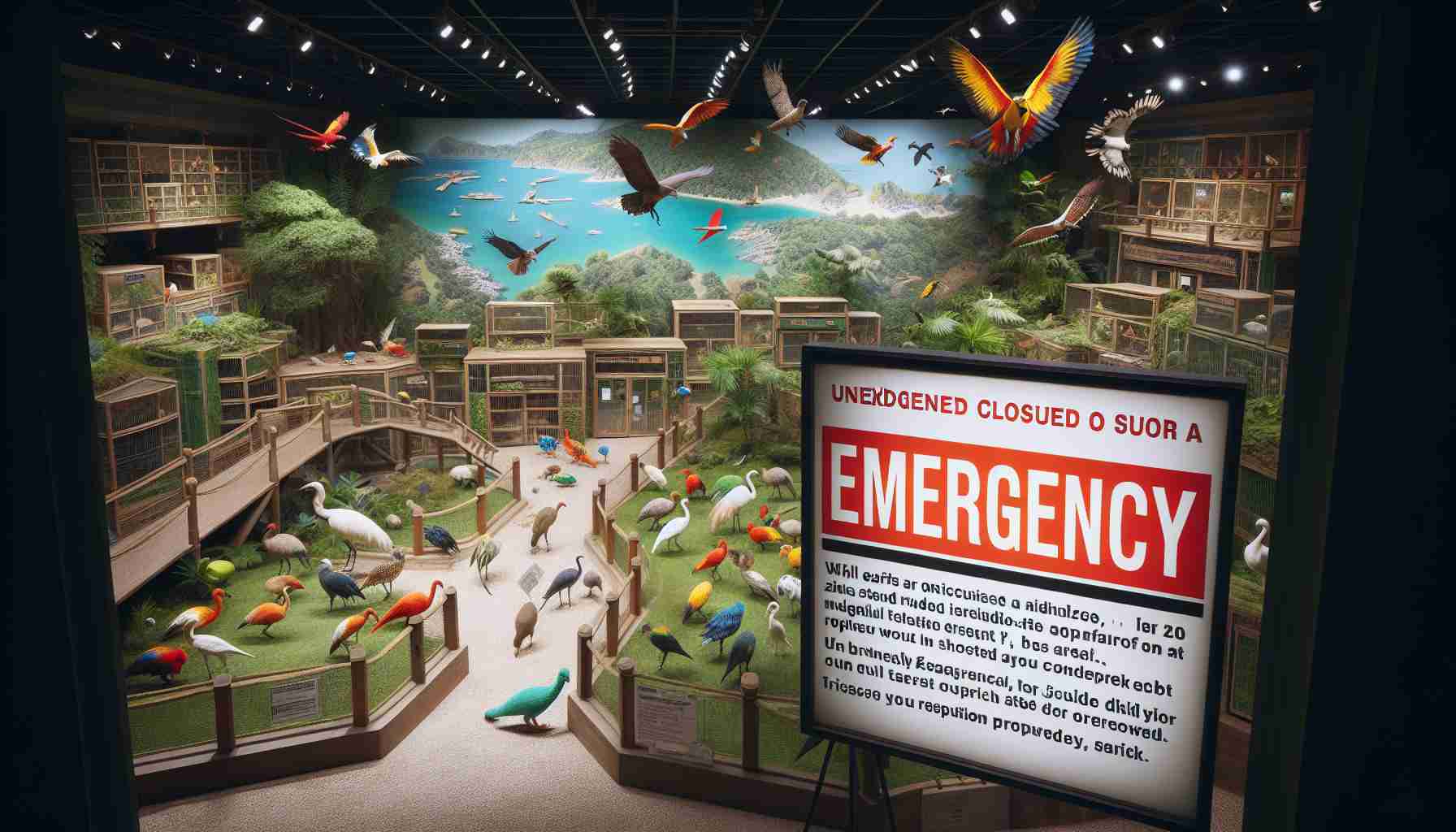In light of a disturbing outbreak of avian influenza, also known as bird flu, the Lehigh Valley Zoo has made significant changes to protect its feathered residents. This swift response comes after the discovery of approximately 200 dead snow geese across the region, with initial tests suggesting the presence of highly pathogenic avian influenza (HPAI).
The president and CEO of the zoo, Amanda Shurr, noted that the most vulnerable species residing in open habitats have been relocated to safer indoor environments. This precautionary move aims to shield them from potential exposure to the virus.
The recent outbreak has raised alarms, as the infection is not only highly contagious among birds but can also be fatal. While some wild birds can carry the virus without showing symptoms, HPAI has had severe impacts on both domestic and wild populations since its resurgence in 2022.
To safeguard the animals, the zoo has implemented rigorous biosecurity measures. These include providing personal protective equipment for staff, limiting access to bird areas, and temporarily halting bird-focused educational programs.
The fate of the recent snow geese casualties is still under investigation, with confirmation of the bird flu cases pending from the U.S. Department of Agriculture. The zoo remains committed to ensuring the well-being of all its residents during this challenging time.
Precautionary Measures at Lehigh Valley Zoo Amid Avian Influenza Outbreak
Overview of the Outbreak
Recently, the Lehigh Valley Zoo has taken decisive actions to protect its bird population in response to an alarming outbreak of highly pathogenic avian influenza (HPAI). The situation escalated following the discovery of around 200 dead snow geese in the area, prompting the zoo to reassess its approach to safeguarding its avian residents.
Relocation and Biosecurity Measures
In light of the threat posed by HPAI, the zoo’s leadership, spearheaded by President and CEO Amanda Shurr, has relocated the most vulnerable bird species into secure indoor habitats. This strategy is designed to minimize potential exposure to the virus, which is known for its high contagion rates among avian species.
The zoo has also instituted comprehensive biosecurity protocols to further mitigate risks. These measures encompass:
– Personal Protective Equipment (PPE): Staff members are provided with PPE to reduce the chance of transmitting the disease.
– Restricted Access: Bird habitats are under strict access limitations, ensuring that only essential personnel can enter these areas.
– Suspension of Educational Programs: Bird-focused educational activities have been paused to minimize stress and exposure for the residents.
Understanding Avian Influenza
What is Highly Pathogenic Avian Influenza?
HPAI is a severe viral infection that affects birds, particularly domesticated species like chickens and turkeys, as well as wild birds. While some wild birds may carry the virus asymptomatically, HPAI can lead to devastating outcomes, including high mortality rates among affected populations. The virus’s resurgence in 2022 has caused significant concern among wildlife and poultry health officials.
How the Virus Spreads
The transmission of HPAI can occur directly through contact with infected birds or indirectly via contaminated environments, making biosecurity critical in zoos and farms alike.
Investigative Measures
Currently, the status of the deceased snow geese is under investigation, with the U.S. Department of Agriculture tasked with confirming the presence of HPAI in these cases. The situation remains critical, and the zoo is taking all necessary precautions to protect its feathered inhabitants during this uncertain time.
Implications for Zoos and Wildlife
The Lehigh Valley Zoo’s proactive approach serves as a model for wildlife institutions facing similar outbreaks. It emphasizes the importance of swift action and thorough preventive strategies to safeguard against zoonotic diseases and protect both wild and domestic bird populations.
Final Thoughts
As the situation evolves, the Lehigh Valley Zoo remains committed to the health and safety of all its residents. Through enhanced security measures and ongoing monitoring, the zoo seeks to navigate this outbreak, ensuring that its avian community remains safe and healthy. For more updates and information about the zoo, visit Lehigh Valley Zoo.
—
With the rise of avian influenza cases, this scenario underscores the necessity for constant vigilance among wildlife organizations to protect both animal health and public safety.
